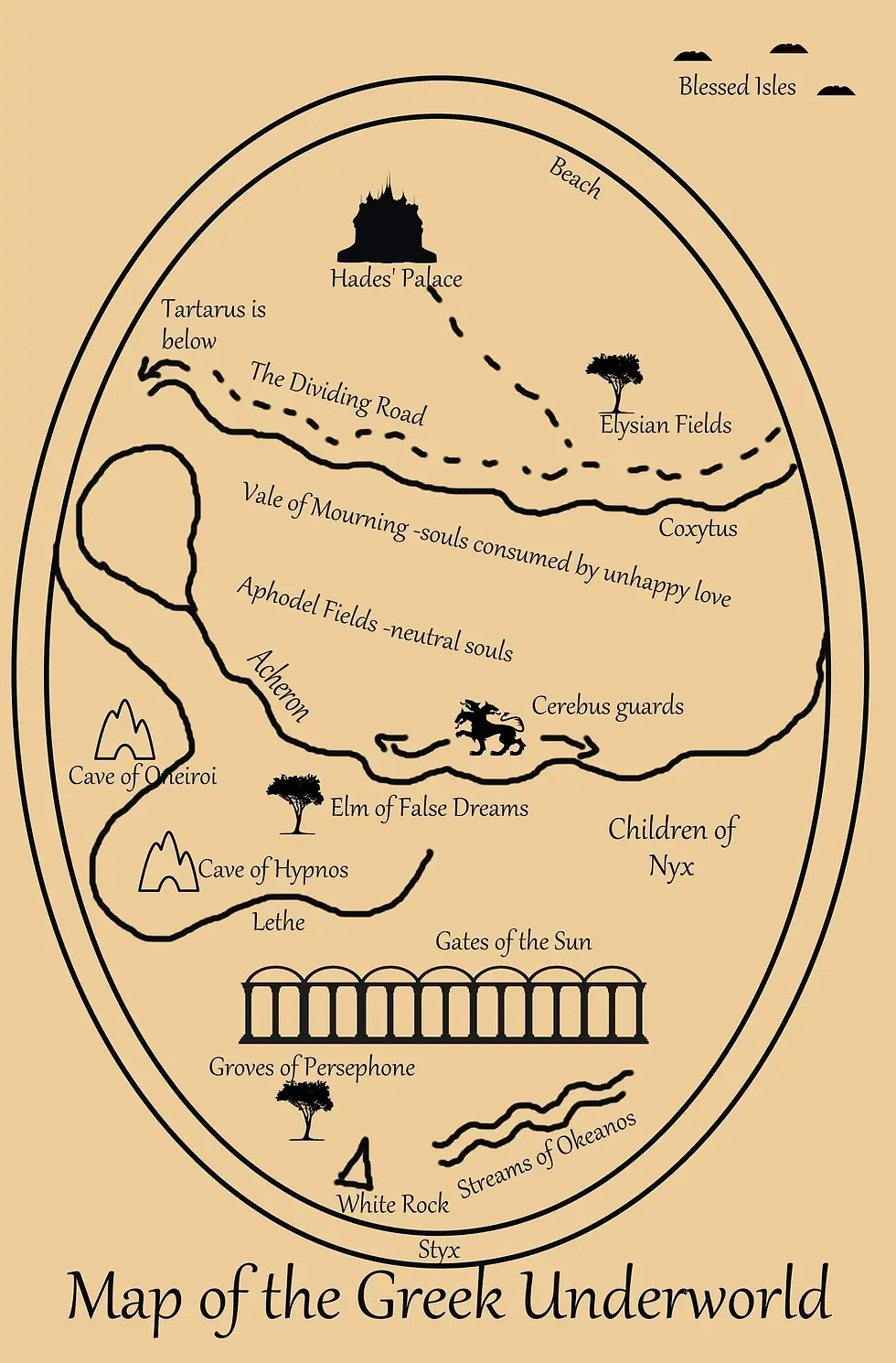Love Hurts: Apollo & Hyacinthus
- Sophie Yang
- Jul 15, 2025
- 3 min read
Updated: Jul 24, 2025

Recently, one of my friends recommended a queer manhwa series following a revolutionary character as he falls in love with the hedonist crown prince of the very empire he is trying to topple. Needless to say, I binged the entire thing in one night and by the end of it I was sobbing because of how beautifully devastating the tragedy was. As I was coping with the void left inside of me after finishing the series, I thought about Apollo and Hyacinthus.
When modern meets myth, the “truth” gets muddled. While myths certainly aren’t monoliths and can have multiple valid interpretations, I’ve noticed that queer stories tend to have especially polarizing receptions: one which firmly believes in the romantic nature of a same-sex friendship and one which will deny it any cost. So, the queer undertones of male-male relationships tend to be washed out. I’ve lost track of the times I’ve heard people say, “Oh, So and So just have a very close, brotherly companionship,” so a queer romance as uncontested as Apollo and Hyacinthus’s is like a breath of fresh air—or perhaps a westward breeze?—for such an undermined genre.
***
Hyacinthus was a young, athletic man from Sparta. His beauty captured the eyes of Apollo, who fell head over heels. The two were particularly fond of playing discus, a game which requires throwing around a flat metal disk as hard as possible. One day, Apollo throws the disk so hard that it seems to break through the heavens, as Ovid says. Hyacinthus runs after the disk, but the disk is flying too fast for him to catch. It hits him on the head, hard. By the time Apollo reaches Hyacinthus’s body, it is too late, and no amount of medicine or spells can save the poor mortal lover of the god of healing.
In honor of Hyacinthus, Apollo creates a flower using his blood. Fascinatingly though, that flower is not actually the one we call the hyacinth. It was probably an iris or a larkspur, since Ovid tells us that Apollo wrote the sound of grief Ai on its petals.

In another telling of the story, Hyacinth was murdered by his unrequited admirer Zephyr, god of the west wind. Jealous of Apollo and Hycinthus’s relationship, a fit of envy takes over Zephyr, who uses his powers to redirect the disk into Hyacinth’s face, unintentionally killing him as a result of his own pettiness. Of course, the god suffers no consequences.
Zephyr’s version emphasizes both the danger of godly pettiness and the danger of mingling the overwhelmingly powerful divine with the helplessly fated mortals. No love between a god and mortal ever ends happily for the mortal, but at the very least, Apollo was also punished for his godhood. The Apollo that is Hyacinthus’s lover drastically differs from the Apollo we otherwise know as the arrogant, self-indulgent, extravagant god who will go to any length to chase down a nymph to satisfy his lust or kill a satyr to protect his pride. In that moment where he embraces Hyacinthus’s dead body in grief, realizing that not even his divine powers are enough to return his lover to him, Apollo is the most human he has ever been.
***
Aside from its tragedy, some scholars speculate that Hyacinth’s death also has a larger historical significance. The suffix -nth pre-dates the Greek language (also seen in Corinth and labyrinth, for example). Based on this, the Oxford Classical Dictionary seems to believe that Apollo’s killing of Hyacinth, who was some older nature deity, symbolically represents the new religion “killing” the old.

One final version of the myth is in an opera written by 11-year-old Mozart, titled Apollo et Hyacinthus. The libretto to the opera was written by a priest, Rufinus Widl, who apparently thought that a little pair of gay, disc-throwing lovers was too scandalous, because he invented a sister for Hyacinthus to replace Hyacinthus as Apollo’s love interest. In his version, Hyacinthus’s death is nothing more than an inconvenience to Apollo’s efforts to seduce his sister.
Myths are meant to be interpreted, but as Madeleine Miller perfectly puts it: “there is bending, and then there is breaking.” Taking away the queer reality of Apollo and Hyacinthus’s story undoes its backbone. It’s one thing to mourn a companion, but not everyone can make a flower out of their beloved’s blood.



Comments